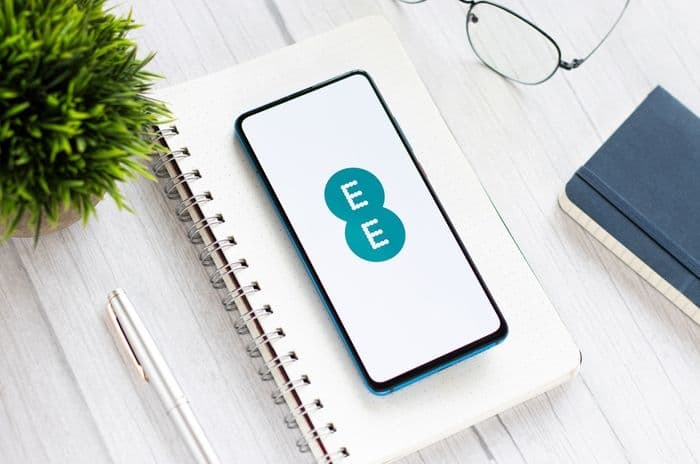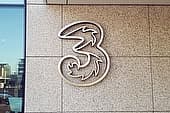Home > Mobile > News > EE and the other winners of Ofcom's mobile airwaves auction
EE and the other winners of Ofcom's mobile airwaves auction
BT's EE mobile network has secured 40MHz of 3.4GHz spectrum in Ofcom's 4G and 5G mobile airwaves auction.

The auction, which was announced last week, offered airwaves in two frequencies: 2.3GHz used to help improve 4G mobile services and 3.4GHz for 5G.
Five of the UK's leading telecoms companies took part in the auction and spent a whopping £1.37 billion it total.
The winning bids broke down as follows:
- EE Limited won 40 MHz of 3.4 GHz spectrum at a cost of £302,592,000.
- Hutchison 3G UK Limited, owner of Three, won 20 MHz of 3.4 GHz spectrum at a cost of £151,296,000.
- Telefonica UK Limited, the parent company of 02, won all 40 MHz of 2.3 GHz spectrum at a cost of £205,896,000; and 40 MHz of 3.4 GHz spectrum at a cost of £317,720,000.
- Vodafone Limited won 50 MHz of 3.4 GHz spectrum at a cost of £378,240,000.
Whilst the fifth participant, Airspan Spectrum Holdings Limited, did not win spectrum in either band.
The money raised was almost double what had been predicted by many analysts. However, it fell short of the amount generated in Ofcom's previous 2.6GHz and 800MHz auction, which grossed over £2.3 billion and prompted a National Audit Office investigation following allegations of overpayment.
The competition heats up
The auction comes at a time when the UK's big four mobile providers EE, O2, Vodafone and Three are all stepping up their efforts to improve services as they compete for the top spot in the market.
O2, the company with the smallest share of the UK's useable spectrum prior to the auction was reported to be the biggest winner as it secured 40MHz of the 2.3GHz (4G) spectrum made available.
While EE, who already owns almost 50% of the 4G spectrum, was prohibited from competing in the 2.3GHz auction after several other companies urged Ofcom to implement a cap that would restrict how much spectrum any one company could own.
Nevertheless EE did well in the second auction by securing a healthy share of the 5G spectrum.
EE in strong position ahead of 5G services launch
EE's mobile services have faced some criticism this year following large scale network outages and price hikes. However, the acquisition puts the company back in the spotlight for more positive reasons as they set out to bolster their mobile network leadership.
Already a dominant force in the 4G market, supplying services to 90% of the UK which is expected to rise to 95% by 2020, EE are now shifting their efforts on 5G services.
Marc Allera, CEO of BT's Consumer Division, said: "The acquisition of 40MHz of 3.4GHz spectrum positions us well for our launch of future 5G services and consolidates our position as one of the world's leading providers of communications services."
5G - the next generation of wireless technologies - is expected to be rolled out in the UK in the next decade and promises mass connectivity across wireless devices such as mobiles, smart home appliances and even driverless cars.
But 4G services will not be left behind, he added: "With this outcome, we'll continue to roll out the fastest 4G service to consumers and businesses across the UK, and now look ahead to the potential new services that 5G will offer, keeping our nation at the forefront of digital communications."
Ofcom working to improve mobile services throughout the UK
About the auction, Philip Marnick, Spectrum Group Director at Ofcom said: "This is good news for everyone who uses their mobile phone to access the internet. As a nation we're using ever more mobile data on smartphones and mobile devices. Releasing these airwaves will make it quicker and easier to get online on the move. It will also allow companies to prepare for 5G mobile, paving the way for a range of smart, connected devices."
This auction is just one part of Ofcom's plans to help improve mobile services in the UK. The telecoms regulator also has plans to release further airwaves next year including the 700MHz, 3.6GHz and 3.8GHz bands.
The 700MHz band, used by Digital Terrestrial Television (DTT), is seen as a way of improving coverage in hard to reach parts of the UK such as many rural areas.
In addition, Ofcom is working with the government to make mobile phone mast installations easier and has also expressed support for the rollout of 'full fibre' networks and the planned 10Mbp universal service obligation.
Receive consumer updates that matter in our newsletter

We are independent of all of the products and services we compare.

We order our comparison tables by price or feature and never by referral revenue.

We donate at least 5% of our profits to charity, and we aim to be climate positive.
Latest News

5 February 2026
Vodafone offers 5G 'Speed Boost' extra benefit
19 January 2026
Three named fastest UK mobile network for 2025
9 January 2026
Ofcom moves to let mobile and Wi-Fi share 6GHz airwavesReceive consumer updates that matter in our newsletter


